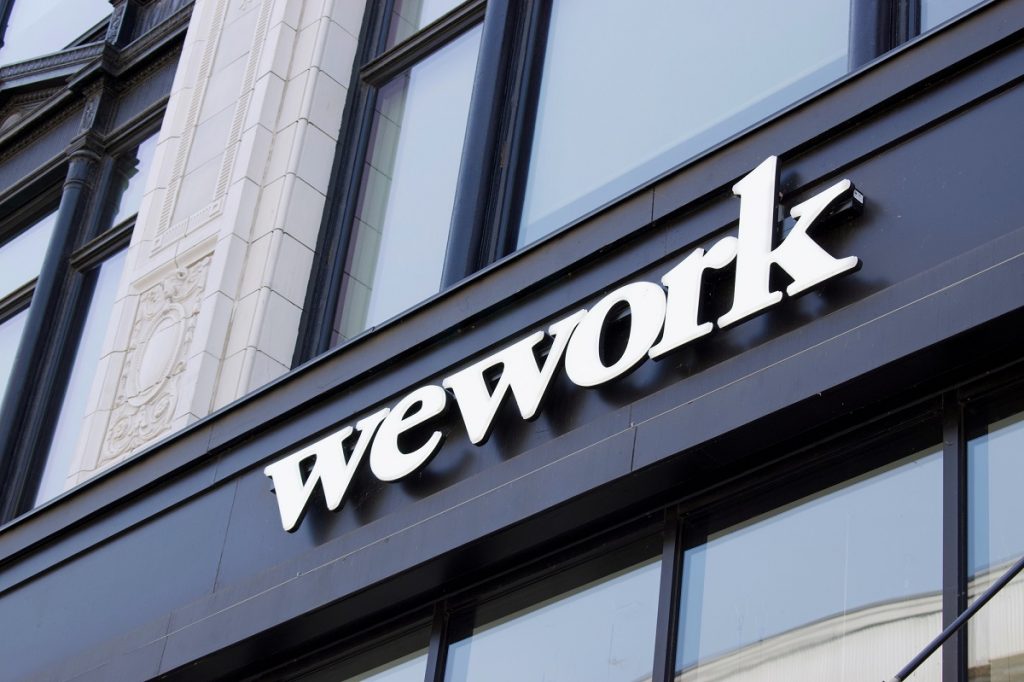The We Company, the parent company of the Israeli co-founded shared workspace firm WeWork, is going back to its original name in an attempt to return to its office-sharing and real estate roots, the company has announced. WeWork had rebranded as The We Company in early 2019 but the name never really took off
Meanwhile, the company’s Israeli-born co-founder Adam Neumann, who left WeWork last year amid controversy, has invested $30 million in Alfred Club Inc., a startup that provides apartment buildings with services such as concierge-like staff and software to manage maintenance requests and other paperwork, according to Bloomberg.
Neumann co-founded WeWork in New York in 2010 with Miguel McKelvey, and the company grew quickly, conquering shared workspaces worldwide in under a decade across nearly 30 countries. Today, WeWork has locations in 150 cities and 38 countries around the world.
The firm hit a highly publicized rough patch last year ahead of an expected IPO that quickly fell apart and tanked its valuation – at its height, WeWork was valued at $47 billion. There were also widespread allegations of misbehavior, including self-dealing, on the part of Neumann.
Neumann was offered a reported $1.7 billion in bailout funds to cut ties with WeWork from Japan’s SoftBank, WeWork’s biggest investor and backer. SoftBank then announced a deal to buy 80 percent of the ailing company that included a commitment of $5 billion in funding and a tender offer for another $3 billion for shareholders outside of Softbank. These included Neumann, employees, and other investors.
SoftBank withdrew the tender offer in April and Neumann filed a lawsuit against the Japanese company a month later for breach of contract. The lawsuit is pending.
In March, SoftBank gave WeWork a valuation of $2.9 billion based on a discounted cash flow method, down from $7.3 billion in December 2019, according to CNBC.
Since last year, WeWork has placed itself on a path toward recovery, announcing new leadership and business strategies, and now restoring the original name.
Sign up for our free weekly newsletter
SubscribeWeWork said the move “reflects the significant progress WeWork has made on strengthening its foundation while executing against its strategic goals under new executive leadership,” according to a company statement.
The co-working space provider said it has had some success despite the coronavirus health crisis and is on a path toward profitability. In recent months, WeWork has divested non-core ventures, rightsized its global portfolio, and improved its balance sheet, while continuing to deliver on its space-as-a-service offering with safety and flexibility, the company said.
In August, WeWork launched (and subsequently expanded) a pilot of its new On-Demand offering, a pay-as-you-go product that gives new customers convenient access to workspaces where and when they need it. The company also rolled out All Access, a subscription-based model that provides members with the ability to work from any WeWork location.
In addition, WeWork rolled out a new business solution for US members, offering for small- and medium-sized businesses with access to a suite of services such as payroll, hiring, and healthcare
“We want to be strategic. We want to be innovative. We want to be impactful. We want to be WeWork,” Sandeep Mathrani, the company’s new CEO, wrote in an internal memo reported by Reuters.
Since Neumann’s exit, Mathrani has hired new management “to steer the company to profitability,” according to Reuters. It has also slashed its cash burn rate and obtained a $1.1 billion commitment in new funding from SoftBank.
Related posts

Israeli AI Safety Tool Among TIME’S Best Inventions For 2024

TAU Team Discovers Mechanism To Eliminate Cancerous Tumors

Ashdod Port Investing In Startups As Part Of Innovation Strategy




Facebook comments